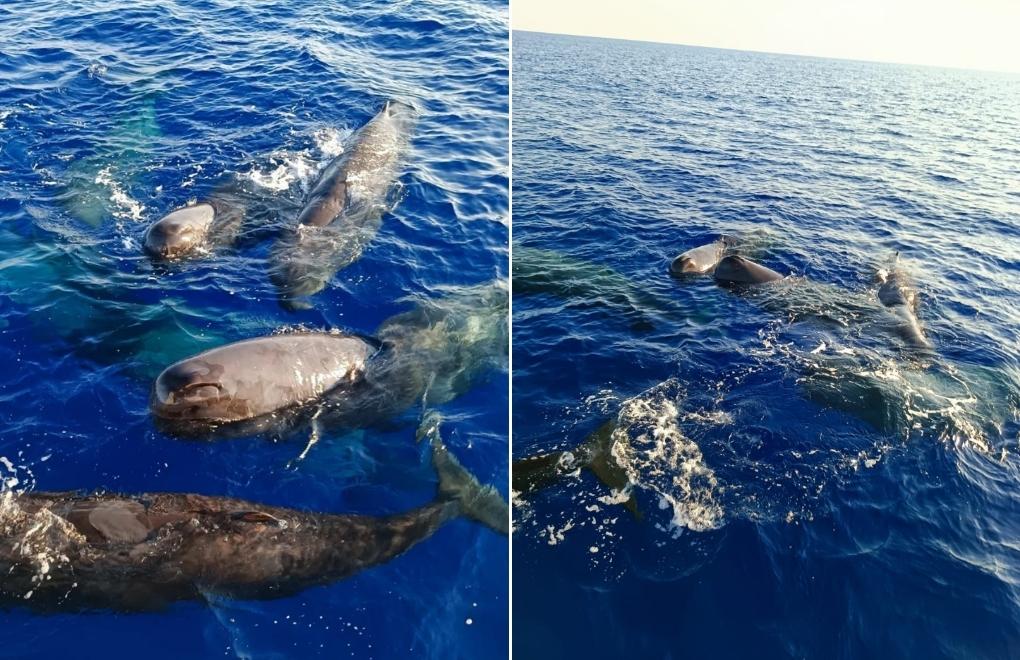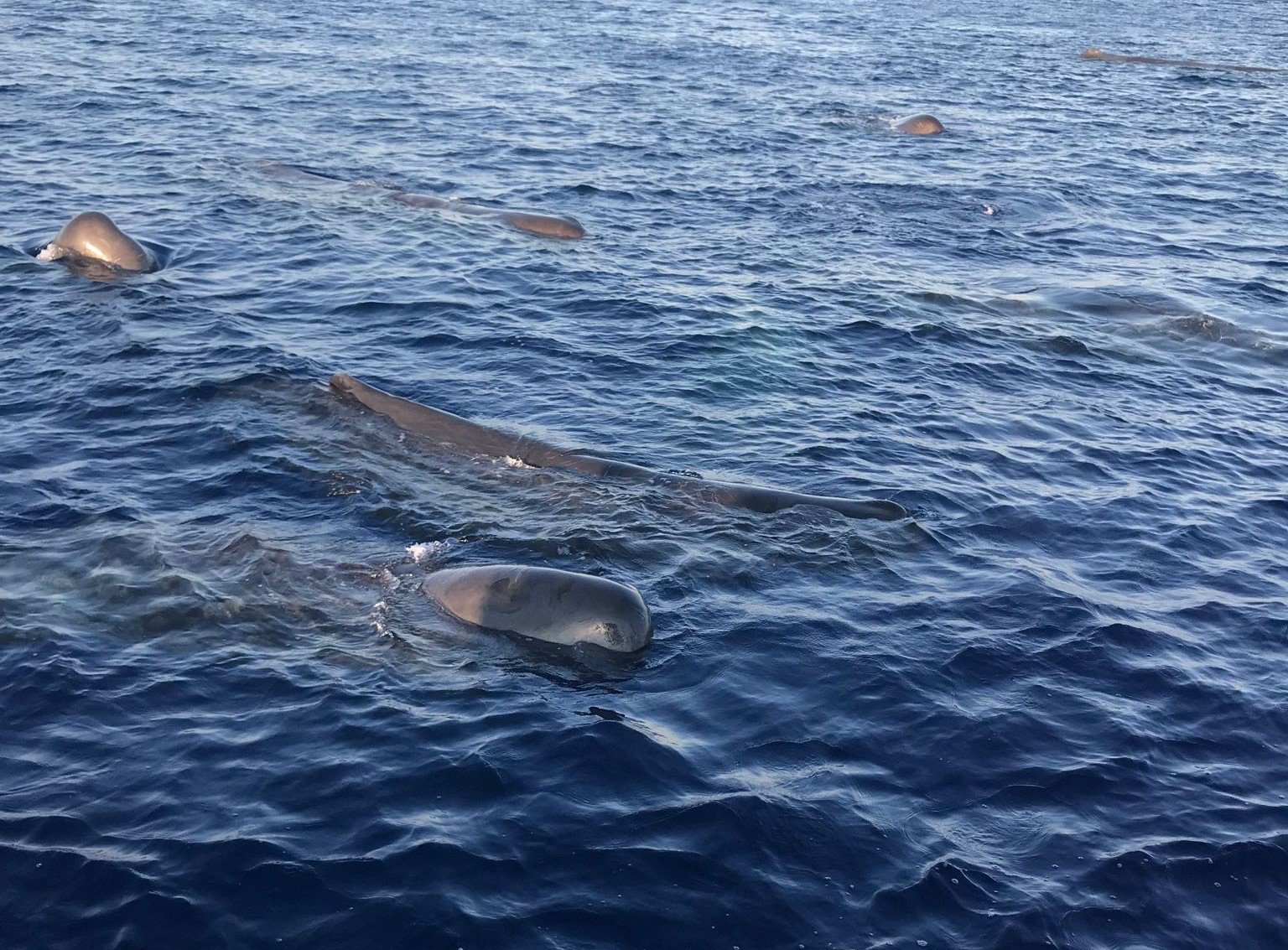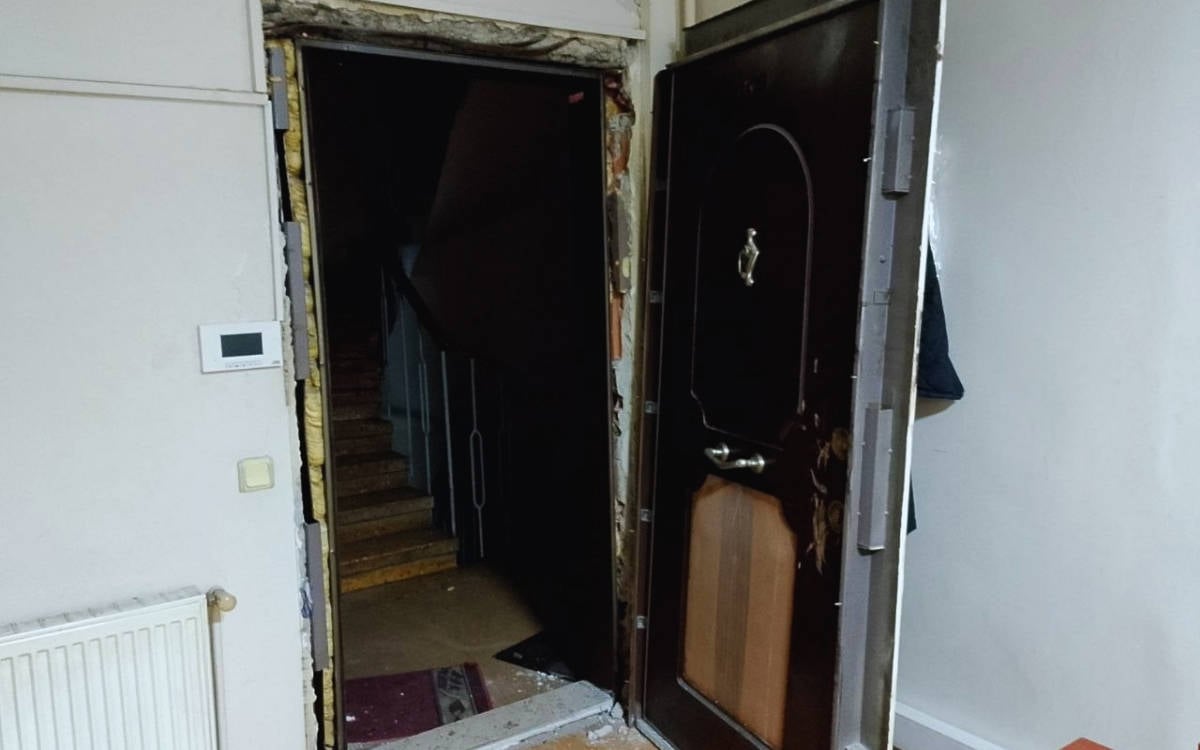Photos: Marine Mammals Research Association
Click to read the article in Turkish
The Marine Mammals Research Association viewed sperm whales (cachalots) in Kaş and Fethiye waters during their research expedition in the Mediterranean Sea last week.
Leyla İsrapilova shared the videos showing the group of sperm whales from her Twitter account yesterday (July 18).
İsrapilova told bianet that they were scanning the Eastern Mediterranean and doing research on the whale and dolphin populations, and that they usually meet these animals in summer months.
"Our expedition has just finished and we have seen these whales a week ago. We met around 15-20 individuals. The ones that we recorded in the videos were the ones that were very close to us," she said.
They first saw the tails of the adults from far away when they dived in order to find food, she stated. "When we approached, we observed the young near the surface. The babies cannot dive deep. They wait on the surface while the mothers are hunting. There were two individuals that we call caretaker grown-ups with the babies," İsrapilova added.
She thinks that it was a crowded group that they met, together with the individuals that dived into the deep sea.
Is the Mediterranean safe for the whales?
We asked İsrapilova if the Mediterranean and the waters of Turkey in general are safe for the whales.
"The populations of the marine mammals are fragile and under risk in the Mediterranean," she replied.
"These are waters where the sea traffic and noise is very high. The greatest threat for these animals is the heavy sea traffic, and the underwater noise, because these animals communicate and hunt using their voice," İsrapilova added.
The underwater noise prevents them from finding their direction and to communicate, and the plastic pollution is another problem.
In this last encounter, they observed a deep propeller scar on a baby whale.
"This shows the risks that the whales face in the waters of Turkey and in the Mediterranean. So we cannot say that the waters of Turkey are very safe for these animals, but it is possible to create safe areas together with our efforts. The researches should continue and protection areas should be set up. In fact this is what we are trying to accomplish," İsrapilova said.
Türkiye'de balina var!
— Leyla İsrapilova (@leylaisr) July 18, 2023
Deniz Memelileri Araştırma Derneği olarak Akdeniz'de yürüttüğümüz araştırma seferinden yepyeni görüntüler. Size Kaş ve Fethiye sularındaki ispermeçet balinalarından selam getirdik!@DMADforNature pic.twitter.com/SMNwcxCFHR
(TY/PE)











